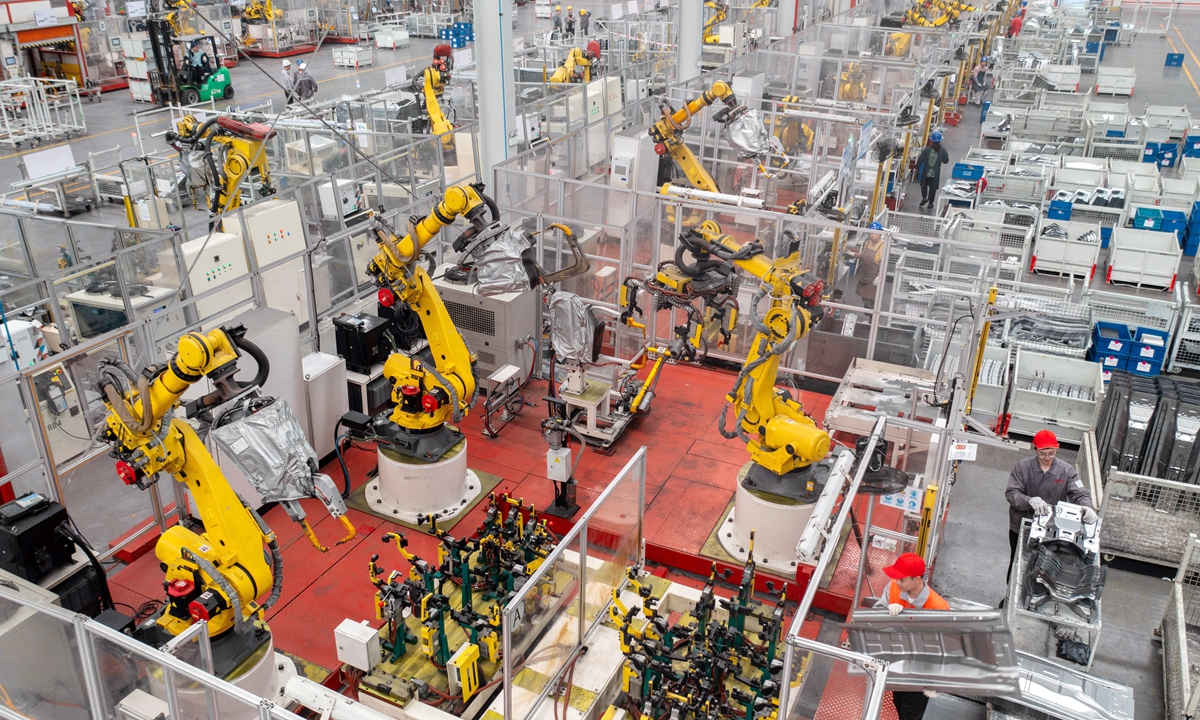Entrepreneurs vow to strengthen innovation, pursue high-quality growth after guideline on revival of private economy

Leading Chinese private entrepreneurs, with boosted confidence, have vowed to strengthen independent innovation and try their best to pursue high-quality growth after the nation on Wednesday rolled out measures to stimulate the vitality of the private sector and give it a bigger role in advancing national rejuvenation.
The guideline released a clear signal to guide private enterprises to practice the new vision for development, which features innovative, coordinated, green, open and shared development, Lei Jun, CEO of Chinese smartphone maker Xiaomi, said in a statement the company sent to the Global Times on Thursday.
This makes enterprises more determined to stick to their main businesses and strengthen the growth of their industries, and it also enhances the motivation for companies to take the road of high-quality development and contribute to the modernization of science and technology, Lei said.
It reflected the firm determination of the country to fully support the private economy, down garment producer Bosideng said in a statement sent to the Global Times.
By actively seizing the opportunity, the company will strive to shore up the core competitiveness of its main business of down clothing, taking the road of high-quality growth, and ramping up efforts to create a world-class brand and a first-class enterprise, it said.
“We will earnestly implement the important instructions and promote the healthy and high-quality development of the e-commerce industry,” Zhao Jiazhen, co-chief executive officer of Chinese e-commerce giant Pinduoduo, said in a statement sent to the Global Times.
The guideline noted support for private enterprises in participating in rural revitalization. Pinduoduo started its business in agriculture, and it will continue to promote the modernization of digital agriculture in areas such as product promotion, technology and talent cultivation, helping to build and develop a modern rural industrial system, Zhao said.
The recovering momentum of the private sector has emerged, while “the key matter is confidence,” Tian Yun, a Beijing-based veteran economist, told the Global Times on Thursday.
Ma Huateng, CEO of tech giant Tencent Holdings, said in an article that the guideline has an important role in strengthening the sector’s confidence and stimulating companies to move forward lightheartedly and boldly. The article was first published on CCTV.com on Wednesday.
It stabilized the sector’s expectations of development, which had been battered by headwinds that emerged during the COVID-19 pandemic and from the changing environment both in China and overseas, Ma said.
As a high-tech developer, Tencent vowed to strengthen independent innovation and step up efforts to play the leading role in the internet industry, especially against the backdrop of the surging artificial intelligence wave. A new round of scientific and technological revolution is on the horizon.
The accelerated development of the private economy is of great significance to the overall economic recovery. If private investment can pick up, it can at least boost economic growth in the second half of the year by 0.5 to 1 percentage points, Tian said.
China aims to expand its economy by about 5 percent in 2023. In the first half, GDP expanded 5.5 percent as the country’s economic recovery continued despite multiple challenges.
The private economy is a new force for promoting Chinese-style modernization, and an important foundation for high-quality development, said the guideline issued by the Communist Party of China Central Committee and the State Council, the cabinet.
With 31 detailed measures, the guideline pledged to improve the business environment by removing barriers in market access and fully implementing policies and mechanisms for fair competition. It will protect intellectual property rights, the property rights of private firms, and the legitimate rights and interests of entrepreneurs as part of the legal guarantee for the growth of the sector.
Yang Delong, chief economist at Shenzhen-based First Seafront Fund Management Co, told the Global Times that the private sector has been playing an important role in the country’s economic development, job creation and taxation.
China’s private economy contributes more than 50 percent of tax revenue, over 60 percent of GDP growth, more than 70 percent of technological innovation and more than 80 percent of urban employment. It also accounts for over 90 percent of the number of enterprises in the nation, official data showed.
In the first half of the year, the private enterprises recorded foreign trade of 10.59 trillion yuan ($1.48 trillion), up 8.9 percent year-on year. This accounted for 52.7 percent of the country’s total trade during the period, an increase of 3.3 percentage points, data released by the General Administration of Customs showed.
